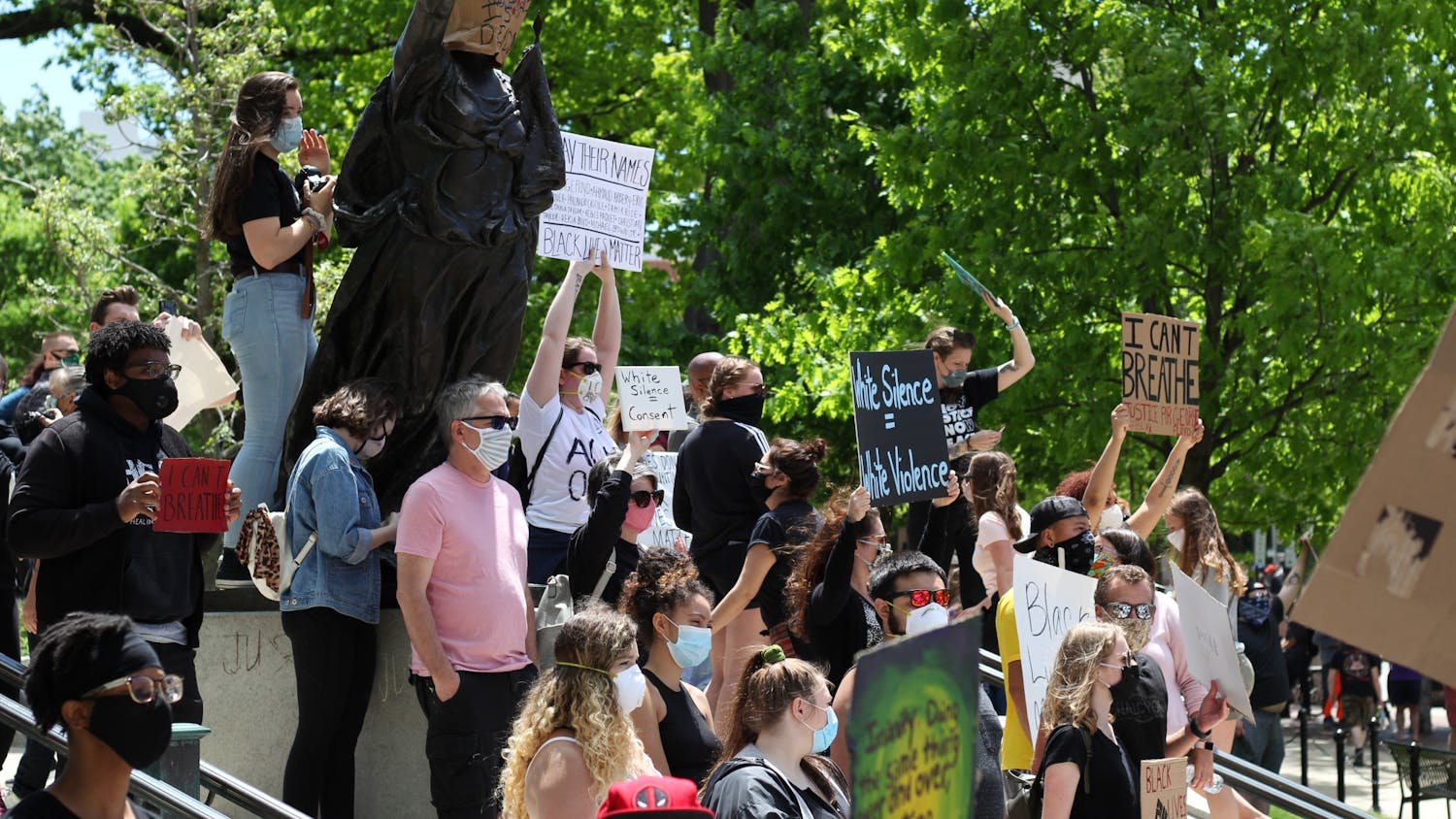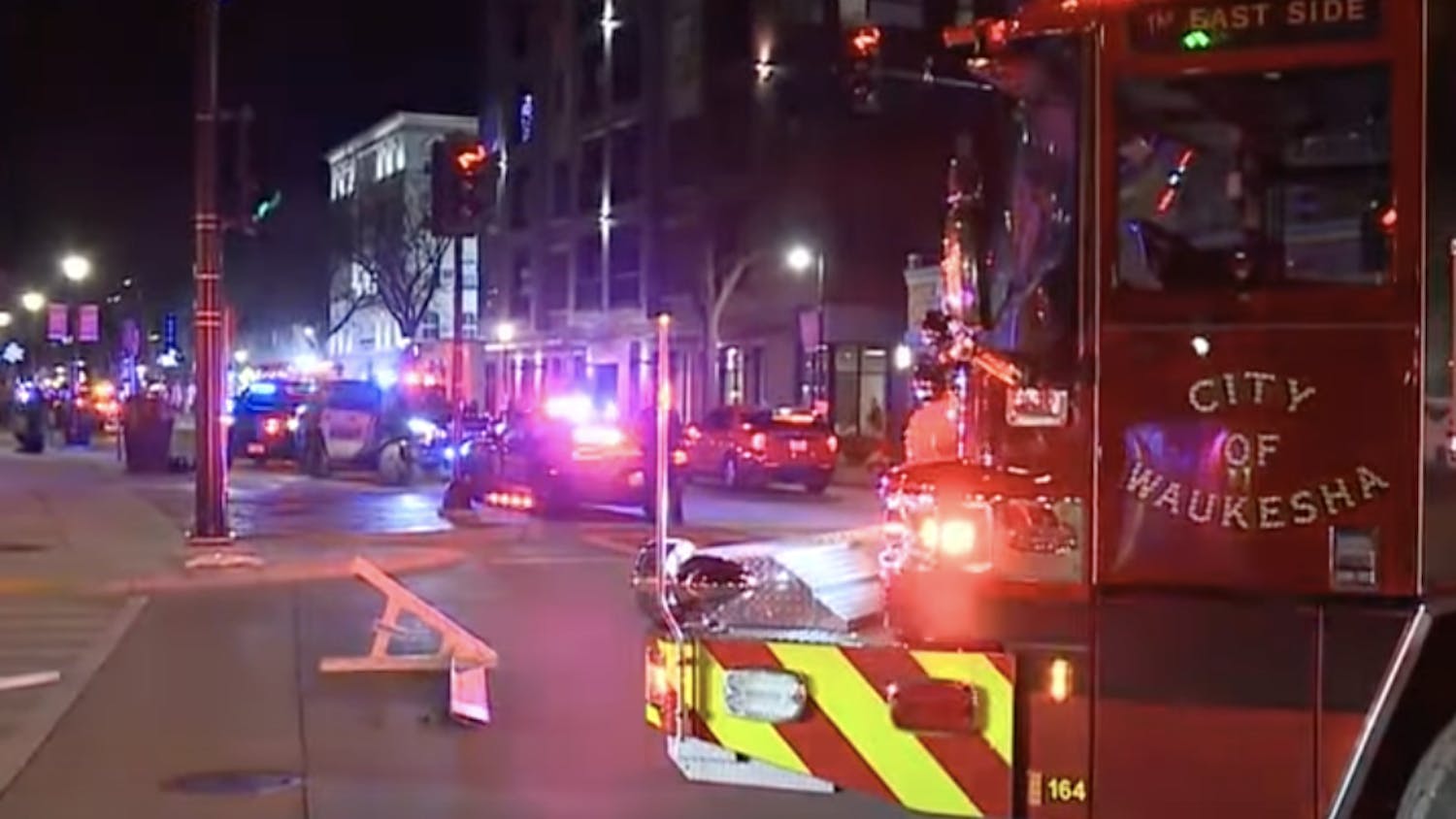After the final votes were tallied in the 2016 general election, then-Republican candidate Donald Trump won the popular vote in Wisconsin over Hillary Clinton by just 22,748 votes.
Of the 2.9 million ballots cast, a significant and politically active segment of the population remained underrepresented at the polls: college students.
Amid rising political participation nationally, multiple advocacy groups pinpointed the decrease in Wisconsin’s student voter turnout to restrictive student ID voter legislation passed in the early 2010s and later upheld by the courts in 2016. And as another presidential election steadily approaches, a bevy of lawsuits challenging the constitutionality of the student ID voter restrictions have flooded state — and now federal — judiciaries.
Wisconsin experienced the second-largest decline in student voter turnout across the United States in 2016, with areas reporting 5 to 11 percent decreases. A 2017 study that surveyed Dane and Milwaukee counties determined anywhere from 16,000 to 23,500 college-aged voters were deterred from voting due to the restrictions.
AGF’s race against the clock
In the latest attempt to restore equal voting rights for Wisconsin college students, the Andrew Goodman Foundation filed a lawsuit against the Wisconsin Election Commissioners in November 2019 in the United States District Court for the Western District of Wisconsin.
AGF is a nonpartisan nonprofit organization that supports voting accessibility and social justice initiatives across college campuses.
Racing against time, a logjam in the courts and the state’s motion to halt the case, AGF recently submitted a memorandum on Jan. 22, seeking an injunction — halting a ruling — to interrupt the implementation of the restrictions.
Late Thursday, however, the court granted a stay, or freeze, on all legal action per a request from the Wisconsin Department of Justice, who represent the elections commissioners.
The downward trend in student voting roots itself in 2011, when a Republican-controlled legislature led by former Gov. Scott Walker signed Act 23 into the law. It placed “stringent restrictions on the use of student IDs — the very type of photo IDs that Wisconsin’s newest and youngest voters are most likely to present to vote,” according to the complaint.
The law stipulates that in order for a college student ID to be deemed acceptable to be used to vote, it must contain “the issuance date, an expiration date no more than two years after the issuance date and the holder’s signature.”
Wisconsin colleges commonly attribute financial and security issues as reasons for not updating their student IDs to agree with the legislation, according to court documents.
AGF filed the lawsuit and cited a violation of the 26th Amendment — which protects American citizens from being discriminated from voting based on age — as their main argument.
Additionally, AGF sought an injunction to prevent continued enforcement of the restrictions.
As similar lawsuits citing the 14th and 15th Amendment arguments lay idle after years of litigation, the AGF case asserts itself as a direct challenge to the state’s student ID voter restrictions and a necessary step to promote free and fair elections in Wisconsin.
“We’re in a position now where we can document the effects of this law on the 2016 and 2018 races and the ways in which students have or have not been able to navigate the law,” said AGF Chief Counsel on Voting Rights Yael Bromberg. “Once that record kind of became clear to us… it became clear that we needed to bring this lawsuit in order to fix the wrong that the law put into place.”
While the November election appears to be the ultimate goal, Bromberg pointed out that smaller races could be affected as well.
“In Wisconsin, there’s so much voter confusion around what the student ID means and how to qualify for it,” Bromberg said. “The motion focuses on the general election, but it could apply for the primary.”
The most recent court attempt by AGF sought relief over student ID voter restrictions. The initial request was accompanied by three expert reports and multiple exhibits and testimony in support of an injunction.
One report written by UW-Madison Political Science Professor Kenneth Mayer concluded that the number of registered college students with on-campus addresses declined 10 percent between 2012-16 and 19.4 percent from 2014-18.
Total on-campus student turnout in Wisconsin only increased by 1 percent from 2012-16 when national averages increased at 3.8 percent for public institutions and 5.6 percent at private schools.
Data taken from the National Study of Learning, Voting and Engagement ranked Wisconsin 38th out of 39 states in turnout changes from 2012-2016 and 37th out of 42 states from 2014-2018.
The defense from the DOJ
As the clock kept ticking, the Wisconsin Department of Justice ratcheted up its defense on behalf of the Wisconsin Election Commissioners. The DOJ filed a brief on Dec. 4, 2019, in favor of initiating a temporary stay on all litigation until further notice.
A central component of the DOJ’s argument charges that other lawsuit’s overlapped with AGF’s and the courts should “await the outcome of parallel proceedings as a matter of ‘wise judicial administration,’” the brief alleges.
The defense also challenged AGF’s decision to file a complaint so close to a general election and purported the laws solely intend to deter voter fraud. Another argument posited a ruling on a prior lawsuit would “streamline the issues,” according to the defense’s brief, even though individual cases are contending different perspectives.
Due to the case’s pending status, the Wisconsin Department of Justice declined to comment.
Currently, a ruling on a lawsuit between the Wisconsin Elections Commissioners and the former One Wisconsin Institute is still being considered in the United States Court of Appeals for the Seventh Circuit in Chicago. While the proximity in arguments remains a subjective debate, the recent court ruling aligns with past precedent.
A judge ruled in the AGF case “the overlapping issues between that case and the present one, and the fact that the Seventh Circuit’s decision will likely provide significant, if not definitive, guidance in resolving the principal issues presented in this case, the court will grant defendant’s motion to stay,” the court order said.
AGF followed in the footsteps of an April 2019 lawsuit filed by Common Cause, Wisconsin’s largest non-partisan advocacy group, against the elections commissioners.
Common Cause originally fought against Act 23 in 2011, and even delayed its implementation until 2016. Its most recent lawsuit is now pending in the Wisconsin State Court of Appeals, awaiting a decision from the same case in Chicago, according to Common Cause ExecutiveDirector Jay Heck.
Heck acknowledged partisan undertones accentuated by the state’s effort to suppress young voters, who often hold liberal political values and pose threats to a Republican-controlled state legislature.
He also refuted the DOJ’s arguments by noting no instance of widespread voter fraud occurred in Wisconsin and “there’s no reason why a student ID with a photo isn’t just as good as a driver’s license.”
“I think the Conservatives have deliberately made it more difficult for college students to vote because they figured that more college students will vote for Democrats than Republicans,” Heck said. “It’s not coincidental that the groups [Republicans] try to make it more difficult to vote a lot more for Democrats.”
Like Bromberg, Heck fears students will be discouraged from voting in upcoming elections if they show up to the polls and are turned away.
Heck also believes out-of-state students may suffer as well — he added they now have to wait 30 days instead of 10 to become eligible to vote.
Campus impact
As of 2018, the UW System accommodated 37,735 students from outside of Wisconsin. The increase in time for voting eligibility poses a conflict for the upcoming August primary as a significant amount of college students that do not live in-state could become ineligible to vote, creating a domino effect leading up to the general election, according to Heck.
“I think there will probably be a drop off [in student voter turnout]… and that’s by design,” Heck said. “And that just means that we’re going to have to make sure that students are informed that they need to get a different ID if they want to be able to vote.”
Students at UW-Madison can receive a free voter ID compliant card at the Wiscard office at Union South. The university also provided the special ID at all seven of the campus’ polling locations during the 2018 midterm elections, according to UW-Madison News and Media Relations Director Meredith McGlone.
“UW-Madison believes that voting is critical to a healthy and vibrant democracy, which is why we are committed to reducing barriers and making voting accessible for all eligible student voters,” McGlone said.
UW-Madison Chancellor Rebecca Blank invested $10,000 to support the Big Ten Voting Challenge in 2018, which increased student voter turnout on campus from 35.6 percent in 2014 to 52.9 percent — second in the Big Ten.
McGlone indicated Blank plans to spend another $10,000 for the 2020 presidential election.
Nonetheless, judicial impasse and the proximity to the next election now block any legal resolution. The recent court order confines AGF to the Chicago case — which has spent years in litigation with no ruling in sight.
The DOJ cited in multiple court documents a legal precedent stating judges should take caution in ruling on decisions that could impact an election and are too close in timing; according to Bromberg this attempts to maintain the status quo.
But for Wisconsin, the status quo can disenfranchise an important segment of voters.
“We can’t wait,” Bromberg said. “We have to move forward.”






